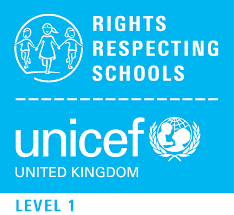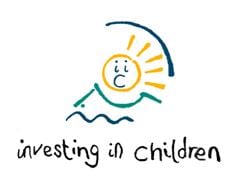Our computing and online safety lead is Mrs Connor. We operate a filtering system in school, Smoothwall, which is monitored by Mrs Norman and Mrs Connor. IT support technicians from Durham Local Authority also ensure that Smoothwall operates effectively. The governors in school. have oversight of this filtering system.
The Internet is now a key part of children’s lives, enabling them to undertake research for school projects, talk to their friends and access information from around the world. Increasing provision of the Internet in and out of schools brings with it the need to ensure that children are safe. Internet development is constantly evolving into ever more innovative areas with many websites enabling amazing creativity and interaction between peers. Unfortunately though, there are times when Internet use can have a negative effect on children. Schools and parents need to be aware of the potential dangers and take measures to ensure safe usage by all.
At school we take several steps to ensure that children are kept safe while using the internet and electronic communication. We use targeted filtering to prevent access to websites that are not suitable or may be dangerous. Internet access in supervised and we monitor the websites that are accessed. Children are also taught how to use the technology safely so that they can keep themselves safe because they are growing up in a world with a bigger range of online activities than ever before and it is sometimes very hard for both children and adults to know how to stay safe. We use a range of resources to teach online safety including the Kapow scheme of work. Each half term, a different online safety area is taught, alongside assemblies and individual class teaching of a specific area, if needed. Please see the whole school online safety plan below.
The following website below has useful advice for parents regarding VR headsets and the Metaverse:
Parents can have a difficult job keeping up with their children on the fast changing technology available to them and with this some of the dangers they can be exposed to. Please see some of our weekly advice leaflets, created by the National Online Safety Centre, that will support you in ensuring your child is safe in a variety of online features.
Digital Lives- Safer Internet Day
There are also a range of useful websites to give advice on general internet safety websites that you can access, as parents, to ensure children can use the internet in a safe way.
Think U Know – http://www.thinkuknow.co.uk
BBC Stay Safe – http://www.bbc.co.uk/cbbc/curations/stay-safe
Kidsmart – http://www.kidsmart.org.uk/
Childnet International – http://www.childnet-int.org/
Digizen – http://www.digizen.org/
Think U Know Parents – http://www.thinkuknow.co.uk/parents/
Google Family Centre – http://www.google.com/familysafety/
Parent Info – http://parentinfo.org/
Another great website to support this is the internet matters website. Online safety is not just about protecting children from some of the dangers of the internet – it is also about helping them manage their use of technology and most of the parental controls allow adults to set a maximum time for the use of a device or app.
Internet Matters is a site paid for by many British companies. It has a lot of good advice on adding parental controls as well as on most aspects of online safety. Parental controls will only help keep children safe. The best safety feature that a child has is their parent or carer. Take the time to talk to your child about the apps and games they are using and don’t be afraid to say no sometimes!
Many children will at times suffer from online bullying. It is really important that they have someone they can talk to and know that it is not acceptable. Most apps and sites will have systems inn place that allow bullying to be reported. Your child’s school may be able to help. Children can call Childline on 0800 1111 for advice on anything that is worrying them.
Finally since 2015 is has been a criminal offence for an adult to send a message with sexual content to a child (This is Section 67 of the Serious Crime Act 2015). If you are concerned that this might have happened please contact The Police without further using the device. This will help ensure that evidence can be preserved. The Police can be contacted by phone or from the ThinkUKnow website.
Parental Controls
The following document give information on how to set up parent controls on different apps, games, technologies and social media platforms.
parental-controls-booklet-2024
Help and Advice
If you find something on the internet or someone has made you sad or scared you should tell your mum, dad or the person who looks after you at home or a teacher at school. If you would like to talk to someone else we have added some links to the Advice Help and Report Centre on the CEOPS website. You can contact people who are friendly and helpful by following the link for your age group.
- Safety Centre for 5 to 7 year olds
- Safety Centre for 8 to 10 year olds
- Safety Centre for 11 to 16 year olds
- Parent Leaflet Online Safety
- Youtube – Advice for school newsletters
- E-Safety – App Privacy (1)












